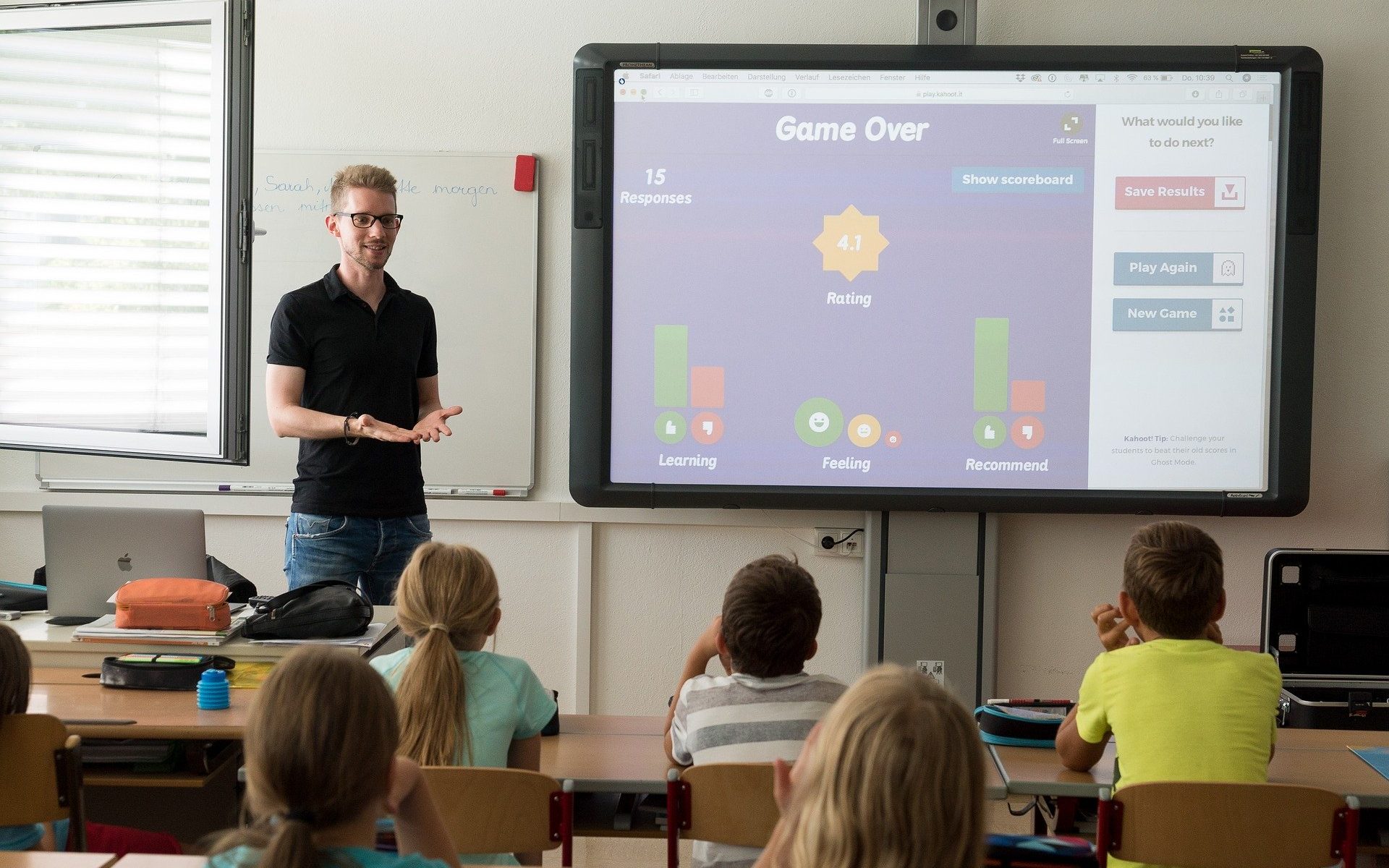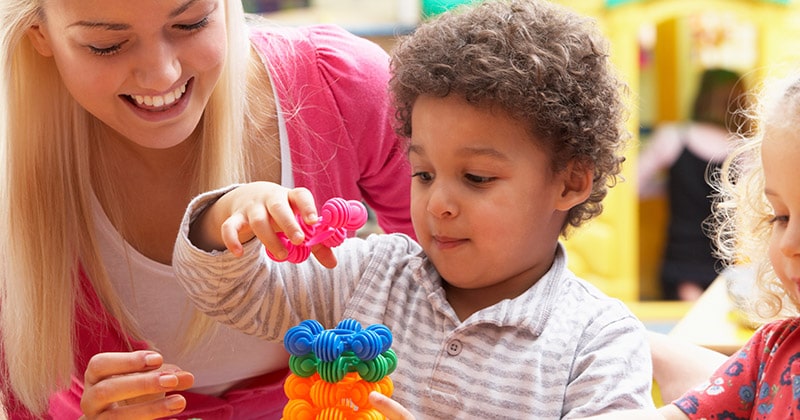I want to be an educator because I am passionate about providing knowledge and making a positive impact on students’ lives. As an educator, I aim to inspire and nurture the next generation, fostering their growth and potential.
By sharing my expertise and fostering a love for learning, I hope to empower students to reach their full potential and contribute to society in meaningful ways. Education is a powerful tool that can shape individuals and communities, and I am motivated to be a part of that transformative process.

Credit: paperwritten.com
Why I Chose To Pursue A Career In Education
I have always had a strong passion for education and a deep desire to make a positive impact on the lives of others. This desire stems from my personal experiences as a student, where I had the opportunity to learn from exceptional educators who went above and beyond to inspire and motivate me. Their dedication to teaching not only helped me excel academically but also instilled in me a love for learning and a desire to help others succeed. Witnessing firsthand the transformative power of education, I knew that I wanted to become an educator myself and have the opportunity to impact future generations. By becoming a teacher, I hope to create a nurturing and supportive learning environment where all students can thrive and reach their full potential. I want to empower my students to become lifelong learners, critical thinkers, and engaged citizens who can make a difference in the world.
The Importance Of Education In Society
Education plays a crucial role in shaping the development of individuals in society. It goes beyond simply imparting knowledge and skills; education enhances both the cognitive and social aspects of students’ lives.
Firstly, education contributes to enhancing the cognitive development of students. By providing a structured learning environment, students are able to acquire knowledge, develop critical thinking skills, and improve their problem-solving abilities. These intellectual advancements help individuals become well-rounded and capable of making informed decisions.
Moreover, education fosters social development by promoting interaction and collaboration among students. Through classroom discussions and group activities, students learn to communicate effectively, develop empathy, and appreciate diverse perspectives. These social skills are essential for functioning effectively in society and building positive relationships.
Furthermore, education prepares individuals for future success. By equipping students with the necessary knowledge and skills, education empowers individuals to pursue their career goals and contribute positively to society. It opens doors to opportunities and cultivates a sense of agency and ambition in learners.
| Importance of Education in Society: |
|---|
| Enhances cognitive development |
| Fosters social development |
| Prepares individuals for future success |
In summary, education has a profound impact on society. It enhances cognitive and social development while preparing individuals for future success. By prioritizing education, we can ensure a brighter and more prosperous future for individuals and society as a whole.
My Educational Philosophy And Teaching Approach
Creating a safe and inclusive learning environment is at the core of my educational philosophy. I firmly believe that students thrive when they feel comfortable and accepted in their learning environment. To achieve this, I prioritize building strong relationships with my students and promoting a sense of community within the classroom. By fostering open and respectful communication, I encourage students to express their thoughts and ideas without fear of judgment. This not only cultivates a supportive learning atmosphere but also allows for diverse perspectives and experiences to be shared and celebrated.
In addition to creating a safe space, I also emphasize encouraging student autonomy and critical thinking. I believe that education is not just about providing information, but rather empowering students to become independent learners and critical thinkers. I encourage students to take ownership of their learning by providing them with opportunities to make decisions, solve problems, and explore their interests. By fostering a love for learning and curiosity, I hope to instill in my students a lifelong passion for acquiring knowledge and a desire to question the world around them.
The Role Of An Educator In Students’ Lives
The role of an educator in students’ lives goes far beyond imparting knowledge and academic skills. Educators have the power to shape young minds and nurture emotional well-being, playing a vital role in the overall development of students. Nurturing emotional well-being and mental health, an important aspect of an educator’s responsibility, involves creating a safe and supportive environment where students feel valued and understood. By providing a listening ear, offering guidance, and promoting self-reflection, educators can help students navigate through the challenges they face.
Mentoring and guiding students through challenges is another crucial part of an educator’s role. Mentoring involves building meaningful relationships with students and providing them with the support they need to overcome obstacles. It includes fostering a growth mindset, teaching resilience, and promoting problem-solving skills. Guiding students through challenges requires educators to identify their strengths and weaknesses, provide personalized learning experiences, and empower them to become self-directed learners.
By fulfilling these roles, educators contribute to the holistic development of students, equipping them with the necessary skills and mindset to thrive academically, emotionally, and socially.
The Joy Of Teaching And Making A Difference
Teaching is not just a profession; it is a passion that brings immense joy and fulfillment. The opportunity to witness students’ growth and achievements is one of the reasons why I want to be an educator. Seeing their faces light up when they understand a concept or solve a problem is truly priceless. As an educator, I have the privilege of investing in the futures of young individuals, shaping their minds, and guiding them on their paths to success. Every day, I am motivated by the thought that I am making a difference in their lives, instilling knowledge and inspiring them to reach their full potential. It is a role that carries immense responsibility but provides an incredible sense of purpose. Becoming an educator allows me to be a positive influence and contribute meaningfully to society, nurturing the leaders and innovators of tomorrow.
Challenges And Rewards In Education
Being an educator comes with its fair share of challenges and rewards. Balancing administrative tasks with classroom instruction is one such challenge that requires careful time management and organizational skills. From grading papers to planning lessons, teachers must juggle multiple responsibilities while ensuring their students receive the best education possible. Additionally, educators have the important task of developing relationships with students and their families. This involves providing support, fostering a positive learning environment, and addressing the unique needs of each student. Building these relationships not only enhances the educational experience but also establishes trust and creates a sense of community within the classroom.
Continuous Professional Development And Growth
Continuous professional development is essential for educators to stay updated on the best practices and educational research. It is imperative for me as an educator to constantly seek opportunities for professional advancement to enhance my teaching skills and knowledge. By staying updated on the current trends and research in education, I can incorporate innovative teaching strategies and techniques into my classroom. This will ultimately benefit my students and help them achieve their full potential. Attending conferences, workshops, and webinars, as well as participating in online courses and collaborative learning communities, allows me to network with other educators and learn from their experiences. Engaging in reflective practices and seeking feedback from colleagues further enhances my professional growth and development.
The Influence And Impact Of Teachers
Teachers have an incredible influence and impact on their students’ lives. They shape students’ perspectives and values, inspiring them towards lifelong learning and personal growth. Teachers play a vital role in molding young minds by imparting knowledge, instilling discipline, and fostering critical thinking skills. They create a positive learning environment that encourages students to explore their full potential and develop a love for learning. Teachers also serve as role models, guiding students to become responsible individuals who contribute positively to society. Their dedication and passion for education leave a lasting impression on students, motivating them to achieve their goals and make a difference in the world. Therefore, becoming an educator is not just a career choice; it is a calling to make a meaningful impact on the lives of future generations.
Closing Thoughts On Being An Educator
Closing Thoughts on Being an Educator
Becoming an educator is not just about imparting knowledge; it is about shaping minds and making a lasting impact on both students and society as a whole. As an educator, you have the opportunity to inspire and empower the next generation, contributing to the development of a brighter future. The fulfillment that comes from seeing your students grow and succeed is unparalleled, and it goes beyond mere academic achievements.
Educators have the power to instill values, cultivate critical thinking skills, and nurture a love for learning. By fostering a positive and inclusive learning environment, educators can help students develop a strong sense of self-worth and resilience. These qualities are essential for students to thrive not only academically, but also in their personal lives and future careers.
The impact of an educator goes beyond the classroom. By encouraging curiosity, creativity, and empathy, educators shape individuals who can contribute meaningfully to their communities and society at large. They play a crucial role in molding responsible citizens who understand the importance of social justice, equality, and environmental sustainability.
Conclusion
Becoming an educator is my passion because it allows me to inspire and shape young minds. The joy of witnessing students’ growth and development is immeasurable. By fostering a positive learning environment, I aim to instill in my students a lifelong love for learning.
As an educator, I am dedicated to making a profound impact on the lives of future generations, turning aspirations into achievements. Together, we can create a brighter future through education.







